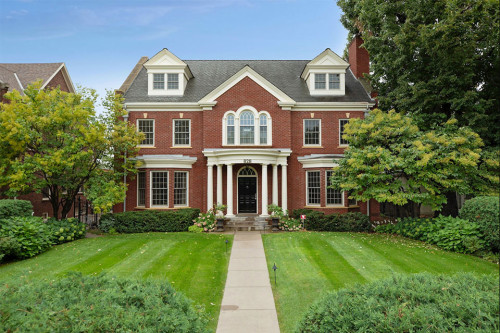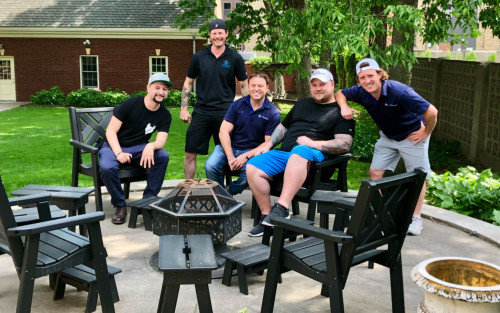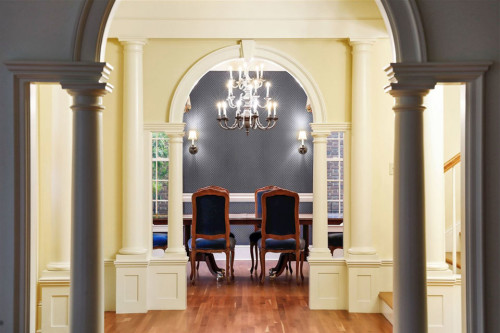






The Recovery Academy Men's Transitional Living
Treatment Focus
This center treats substance use disorders and co-occurring mental health conditions. Your treatment plan addresses each condition at once with personalized, compassionate care for comprehensive healing.
Primary Level of Care
Transitional housing designed to support individuals recovering from substance use disorders offering a safe, supportive and structured environment for practicing long-term sobriety, while reintegrating back into daily living.
Claimed
Recovery.com has connected directly with this treatment provider to validate the information in their profile.
Treatment Focus
This center treats substance use disorders and co-occurring mental health conditions. Your treatment plan addresses each condition at once with personalized, compassionate care for comprehensive healing.
Primary Level of Care
Transitional housing designed to support individuals recovering from substance use disorders offering a safe, supportive and structured environment for practicing long-term sobriety, while reintegrating back into daily living.
Private Pay
You pay directly for treatment out of pocket. This approach can offer enhanced privacy and flexibility, without involving insurance. Exact costs vary based on program and length of stay. Contact the center for specific details.
The Recovery Academy Men's Transitional Living
The Recovery Academy Men's Transitional Living
About The Recovery Academy Men's Transitional Living
The Recovery Academy in St. Paul, Minnesota offers structured sober living for men with substance use disorders. Since 2017, they have provided a supportive environment to help clients transition from residential care to independent living. Their services include daily check-in groups, drug testing, prepared community dinners, on-site staff, recovery coaches, licensed counselors, and a variety of recreational activities. The Recovery Academy emphasizes accountability, respect, and community, making it a standout choice for those seeking a comprehensive recovery experience.
Holistic Transitional Aftercare
The Recovery Academy is a co-occurring transitional aftercare program for men dealing with alcohol or drug addiction. Using a holistic, community-focused treatment model, they prioritize wellness and a healthy lifestyle. The program aims to help clients develop a sense of meaning and purpose, fostering a sense of belonging. They offer housing, medication management, case management, sober/life coaching, counseling, groups, meal preparation, and 24/7 staffing. Clients collaborate on their recovery plans, set long-term goals, and navigate their paths to sobriety.
A Typical Day
At The Recovery Academy, a typical day is structured to foster accountability and support. Residents start with a morning check-in group to set daily goals and review progress. Throughout the day, they attend individual and group therapy sessions, engage in recreational activities, and participate in life skills workshops. Drug testing ensures accountability, while community dinners and activities build camaraderie. On-site staff and recovery coaches provide continuous support, and licensed counselors are available for personalized care. This structured routine helps residents transition smoothly from treatment to independent living.

Center Overview
Treatment Focus
This center treats substance use disorders and co-occurring mental health conditions. Your treatment plan addresses each condition at once with personalized, compassionate care for comprehensive healing.

Pricing and Program Length
Estimated Center Costs
Center pricing can vary based on program and length of stay. Contact the center for more information. Recovery.com strives for price transparency so you can make an informed decision.
Levels of Care






Your Care Options
Specializations
Alcohol
Using alcohol as a coping mechanism, or drinking excessively throughout the week, signals an alcohol use disorder.
Co-Occurring Disorders
A person with multiple mental health diagnoses, such as addiction and depression, has co-occurring disorders also called dual diagnosis.
Drug Addiction
Drug addiction is the excessive and repetitive use of substances, despite harmful consequences to a person's life, health, and relationships.
Sober Living
These structured living environments help people transition out of rehab. Residents have more freedom than they do during rehab, but still follow certain rules.
Who We Treat
Approaches
Holistic
A non-medicinal, wellness-focused approach that aims to align the mind, body, and spirit for deep and lasting healing.
Twelve Step
Incorporating spirituality, community, and responsibility, 12-Step philosophies prioritize the guidance of a Higher Power and a continuation of 12-Step practices.
Gender-Specific
Separate treatment for men or women can create strong peer connections and remove barriers related to trauma, shame, and gender-specific nuances.
Therapies
Family Therapy
Family therapy addresses group dynamics within a family system, with a focus on improving communication and interrupting unhealthy relationship patterns.
Twelve Step Facilitation
12-Step groups offer a framework for addiction recovery. Members commit to a higher power, recognize their issues, and support each other in the healing process.
Substances We Treat
Alcohol
Using alcohol as a coping mechanism, or drinking excessively throughout the week, signals an alcohol use disorder.
Co-Occurring Disorders
A person with multiple mental health diagnoses, such as addiction and depression, has co-occurring disorders also called dual diagnosis.
Drug Addiction
Drug addiction is the excessive and repetitive use of substances, despite harmful consequences to a person's life, health, and relationships.
Prescription Drugs
It's possible to abuse any drug, even prescribed ones. If you crave a medication, or regularly take it more than directed, you may have an addiction.
Languages
Care Designed for Your Needs
Personal Amenities
Amenities
Special Considerations
Gender-specific groups
Patients in gender-specific groups gain the opportunity to discuss challenges unique to their gender in a comfortable, safe setting conducive to healing.
Activities






